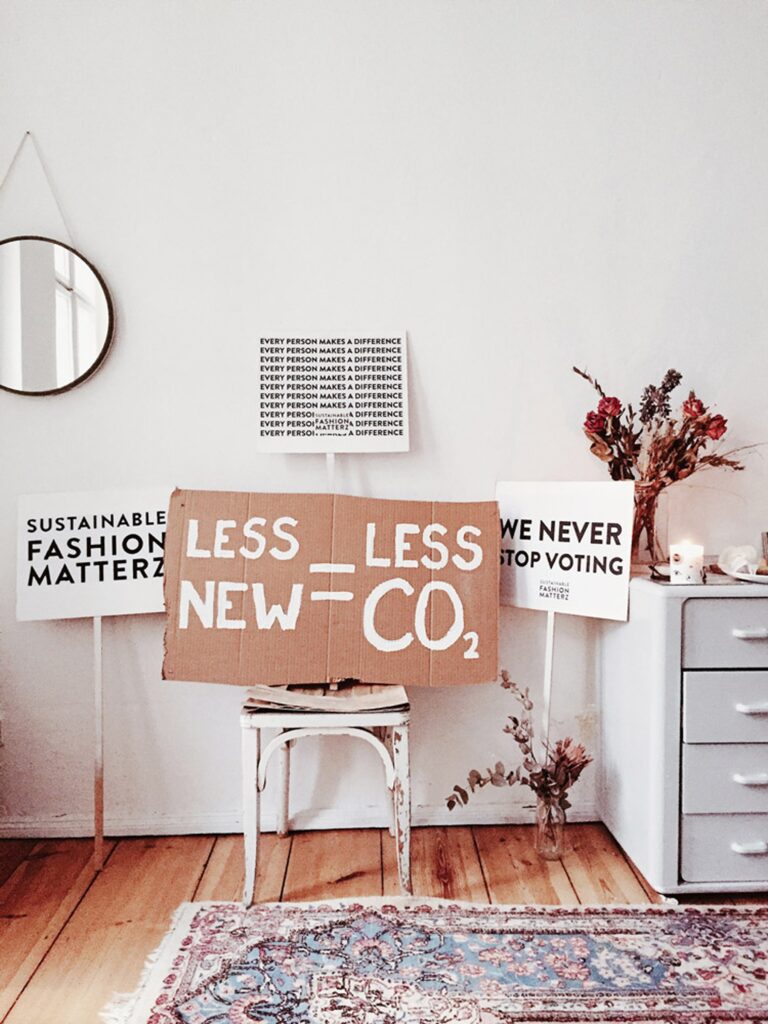Kora Living: Small Actions, Big Impacts
The escalating climate crisis has underscored the urgent need to shift towards a more sustainable lifestyle. However, the journey to sustainability is often perceived as a daunting task, reserved for those with ample resources and time. Contrary to this widespread belief, every individual can contribute to the fight against climate change by making seemingly small adjustments in their daily routines. One such initiative aimed at promoting sustainable living is Kora, a platform that encourages and rewards eco-friendly actions. This article will break down how Sustainable Living and everyday changes can significantly reduce your carbon footprint and contribute to a healthier planet.
1. Speaking Out: Power of the Voice
The first step towards driving change is raising awareness about the pressing environmental issues we face today. Every conversation matters. Whether it’s discussing the impact of plastic pollution with your friends or advocating for renewable energy sources in your local community meetings, speaking up can make a difference.
1.1. Engaging in Conversations
The power of dialogue should never be underestimated. Keeping the conversation going around climate change can make it a mainstream issue, prompting more individuals to act. Sharing information about Kora and its mission to promote sustainable living can be a great conversation starter.
1.2. Advocacy
Apart from casual conversations, advocacy is a critical aspect of making your voice heard. Contact your local representatives, get involved in environmental campaigns, and use your social media platforms to raise awareness about climate change and the role of initiatives like Kora in promoting sustainable living.
2. Sustainable Travel: A Step Towards Lower Emissions
Transportation is one of the largest contributors to greenhouse gas emissions. Kora provides a unique solution to this problem by encouraging sustainable travel habits.
2.1. Choosing Greener Modes of Transport
Whenever possible, opt for environment-friendly modes of transport. Walking, cycling, or using public transportation not only reduces your carbon footprint but can also lead to health benefits. Kora rewards individuals for choosing these greener alternatives, making the shift towards sustainable travel even more appealing.
2.2. Responsible Holidaying
The way we holiday can also have significant environmental implications. Choosing destinations closer to home, opting for train travel over flights, and supporting local conservation projects during your holiday can all contribute to reducing your carbon emissions.
3. Sustainable Eating: A Win-Win for Health and Environment
The food we consume has a considerable impact on the environment, with meat and dairy production being particularly resource-intensive. We should promote a shift towards a plant-based diet, which can significantly reduce your environmental footprint.
3.1. Reducing Meat Consumption
Reducing meat and dairy consumption can have a considerable impact on your carbon footprint. Even swapping one meat-based meal per week to a plant-based one can make a difference. Moreover, with the rise of plant-based alternatives, transitioning towards a more plant-centric diet has become easier than ever.
3.2. Minimizing Food Waste
Food waste contributes to greenhouse gas emissions and is a significant waste of resources. By planning meals, using leftovers creatively, and composting organic waste, you can ensure that your food consumption is as sustainable as possible.
4. Waste Reduction: Towards a Circular Economy
Waste reduction is a critical aspect of sustainable living. Kora encourages individuals to adopt practices that minimise waste generation, promoting a shift towards a circular economy where resources are used, recycled, and reused to the maximum extent possible.
4.1. Reusable Items
Replacing single-use items with reusable alternatives can significantly reduce the amount of waste you generate. For example, carrying your reusable shopping bag, using a refillable water bottle, or opting for a reusable coffee cup can all help in cutting down your plastic waste.
4.2. Recycling
Recycling is another crucial aspect of waste reduction. Ensuring that your waste is properly sorted so that recyclable materials can be processed and reused can go a long way in reducing the amount of waste that ends up in landfills.
5. Energy Efficiency: Saving Energy and Money
Improving energy efficiency in your home can not only reduce your carbon emissions but also save you money on your energy bills. Many resources provide tips on how you can make your home more energy-efficient, from switching off lights when not in use to maintaining your household appliances for optimal performance.
5.1. Efficient Lighting
Switching to energy-efficient light bulbs and turning off lights when not in use can significantly reduce your home’s energy consumption. Moreover, using natural light whenever possible can further enhance energy efficiency.
5.2. Efficient Appliance Use
Using appliances efficiently can also contribute to energy savings. This includes turning off your computer at night, using your washing machine and dishwasher only for full loads, and maintaining your refrigerator for optimal performance.
6. Green Shopping: Making Conscious Choices
The products we buy and the companies we support can have a significant impact on the environment. Kora encourages individuals to make conscious shopping choices, supporting companies that prioritise sustainability and offer eco-friendly products.
6.1. Supporting Sustainable Brands
Supporting brands that prioritise sustainability can help drive the market towards more eco-friendly products and practices. Whether it’s fashion, beauty, or household products, choosing brands that prioritise sustainability can make a big difference.
6.2. Buying Second-Hand
Buying second-hand items not only saves you money but also helps reduce demand for new products, thereby minimizing the resources used for production and the waste generated from disposal. Whether it’s clothes, furniture, or electronics, consider buying second-hand whenever possible.
7. Community Involvement: Collective Action for Bigger Impact
While individual actions are important, collective action can lead to even greater impacts. We need to encourage individuals to get involved in their local communities, whether it’s participating in local clean-up drives, advocating for environmental policies, or sharing sustainable living tips with friends and neighbours.
7.1. Participate in Local Initiatives
Participating in local environmental initiatives can be a great way to contribute to sustainability efforts in your community. Whether it’s a local clean-up drive, a tree-planting event, or a community gardening project, getting involved can make a difference.
7.2. Advocate for Environmental Policies
Advocacy is a powerful tool for driving environmental change in your community. Use your voice to advocate for environmental policies in your local council, engage in discussions about environmental issues, and encourage others to join you in your efforts.
8. Lifelong Learning: Stay Informed, Stay Engaged
Staying informed about environmental issues and sustainable living practices is key to maintaining your commitment to sustainability. Kora provides resources and information to help individuals stay informed and engaged in their sustainability journey.
8.1. Staying Updated
Keeping up-to-date with the latest news and research on environmental issues can help you make informed decisions about your lifestyle choices. Whether it’s understanding the impact of meat production on the environment or learning about the benefits of energy-efficient appliances, staying informed is key.
8.2. Learning from Others
Learning from others can also be a great way to improve your sustainability practices. Whether it’s following eco-bloggers, joining online sustainability forums, or attending local sustainability workshops, there are plenty of resources available to help you learn and grow.
9. Making a Financial Contribution: Every Penny Counts
While adopting sustainable practices is crucial, financial contributions can also make a significant difference. Supporting organizations that work towards promoting sustainability can help drive change at a larger scale.
9.1. Donating to Environmental Causes
Donating to environmental causes can help fund projects that are working towards safeguarding our planet. Whether it’s contributing to reforestation efforts, supporting renewable energy projects, or aiding in wildlife conservation, your donations can make a big difference.
9.2. Supporting Sustainable Initiatives
Supporting sustainable initiatives can also contribute to environmental conservation. By rewarding individuals for their sustainable actions, Kora is driving behavioural change and encouraging more people to adopt sustainable practices.
10. Taking Action: Making Sustainable Living a Way of Life
In conclusion, living sustainably doesn’t have to be challenging or expensive. By making small changes in your daily routines and adopting sustainable practices, you can significantly reduce your environmental impact. Through Kora, you can also be rewarded for your efforts, making your sustainability journey even more enjoyable.
10.1. Implementing Changes
Start by implementing some of the changes suggested in this article. Whether it’s reducing your meat consumption, switching to energy-efficient light bulbs, or participating in a local clean-up drive, every little action counts.
10.2. Encouraging Others
Finally, encourage others to join you in your sustainability journey. Share your experiences, successes, and challenges with friends, family, and your local community. Help spread the word about Kora and the benefits of sustainable living. Together, we can make a big difference in protecting our planet.
In the immortal words of Mahatma Gandhi, “Be the change you wish to see in the world.” With Kora, not only can you be that change, but you can also inspire others to join in, creating a ripple effect of positive environmental impact. Let’s all embrace Kora and make our planet a healthier and happier place for generations to come.




